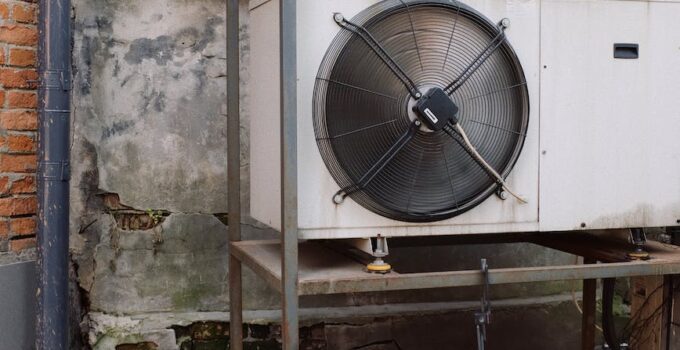When it comes to choosing a generator for your power needs, you may come across two main options: inverter generators and regular generators. Both serve the same purpose of providing power, but they have distinct differences that can impact your choice.
In this article, we will provide a detailed comparison between inverter generators and regular generators to help you make an informed decision.
Understanding the Differences: Inverter Generator vs. Regular Generator
Before diving into the specifics, it is essential to understand the fundamental differences between inverter generators and regular generators. Inverter generators are designed to produce clean and stable power, similar to the electricity you get from the grid. Regular generators, on the other hand, produce power by running an engine at a constant speed, regardless of the load.
Power Output and Efficiency: Comparing Inverter Generator and Regular Generator
The power output and efficiency of a generator play a crucial role in determining its performance. Inverter generators are known for their ability to deliver consistent power output, making them suitable for sensitive electronics such as laptops, smartphones, and other devices.
Regular generators, although they can provide higher power output, may not be as stable, leading to potential damage to sensitive equipment.
An inverter generator achieves its stable power output by converting the AC power produced by the generator into DC power and then inverting it back to AC power. This process allows for precise control of voltage and frequency, resulting in clean and stable power.
Regular generators, also known as conventional generators, do not have this level of control. They rely on a mechanical alternator to produce power, which can fluctuate depending on the engine’s speed. This inconsistency in power output can be problematic for delicate electronics.
When it comes to efficiency, inverter generators have the upper hand. They are designed to adjust the engine speed according to the power demand, resulting in lower fuel consumption and reduced noise levels. Regular generators, on the other hand, run at a constant speed, consuming more fuel and generating more noise.
Noise Level and Portability: Inverter Generator vs. Regular Generator
Noise level and portability are significant factors to consider when choosing a generator, especially if you plan to use it in outdoor or camping situations.
Inverter generators are known for their quiet operation. Since they adjust the engine speed based on the load, they can run at a lower RPM, resulting in reduced noise levels. Regular generators, however, tend to be louder due to their constant engine speed.
In terms of portability, inverter generators are generally lighter and more compact than regular generators. They are designed with built-in handles or wheels, making them easier to transport. Regular generators, especially those with larger power output, can be bulkier and heavier, requiring more effort to move around.
Fuel Efficiency and Environmental Impact: Inverter Generator vs. Regular Generator
With the increasing concern for the environment, fuel efficiency and environmental impact have become crucial considerations when choosing a generator. Inverter generators are highly fuel-efficient, thanks to their ability to adjust the engine speed based on the load. This results in reduced fuel consumption and lower emissions.
Regular generators, on the other hand, tend to consume more fuel due to their constant engine speed. They may also produce more emissions, contributing to air pollution. If you prioritize environmental friendliness, an inverter generator is the better choice.
Cost and Maintenance: Inverter Generator vs. Regular Generator
Cost and maintenance are essential factors to consider when purchasing a generator. Inverter generators are generally more expensive than regular generators.
The advanced technology and additional features contribute to the higher price tag. However, they offer better performance, fuel efficiency, and quieter operation, justifying the higher cost.
Regular generators, being simpler in design, are more affordable. They may require less maintenance, as they do not have complex electronics or inverters. However, they may need more frequent oil changes and other routine maintenance tasks.
Choosing the Right Generator: Factors to Consider
Now that we have explored the differences between inverter generators and regular generators, let’s summarize the factors you should consider when choosing the right generator:
- Power requirements: Determine the power output you need for your specific appliances and devices.
- Sensitivity of electronics: If you have sensitive electronics, such as laptops or smartphones, an inverter generator is a safer choice.
- Noise level: Consider the noise restrictions in your area and choose a generator accordingly.
- Portability: If you need a portable generator for outdoor activities, an inverter generator’s compact size and lighter weight may be more suitable.
- Fuel efficiency: If you want to minimize fuel consumption and reduce emissions, an inverter generator is the better option.
- Budget: Consider your budget and weigh the benefits of each type of generator.
Frequently Asked Questions about Inverter Generator vs. Regular Generator: Detailed Comparison
Q: What is the main difference between an inverter generator and a regular generator?
A: The main difference lies in the way they produce power. Inverter generators provide clean and stable power, while regular generators produce power at a constant speed, which can fluctuate and potentially damage sensitive electronics.
Q: Are inverter generators more fuel-efficient than regular generators?
A: Yes, inverter generators are more fuel-efficient due to their ability to adjust the engine speed based on the load. This results in reduced fuel consumption and lower emissions.
Q: Can I use an inverter generator for my RV or camping trips?
A: Absolutely! Inverter generators are highly portable and suitable for RV or camping use. Their compact size, lighter weight, and quiet operation make them ideal for outdoor activities.
Expert Advice
When choosing between an inverter generator and a regular generator, it is essential to assess your specific power needs and consider factors such as power output, efficiency, noise level, portability, fuel efficiency, and budget.
If you prioritize clean and stable power for sensitive electronics, along with fuel efficiency and quiet operation, an inverter generator is the better choice.
However, if you have a lower budget and do not require the same level of precision power, a regular generator may suffice. Ultimately, the right generator depends on your individual requirements and preferences.






